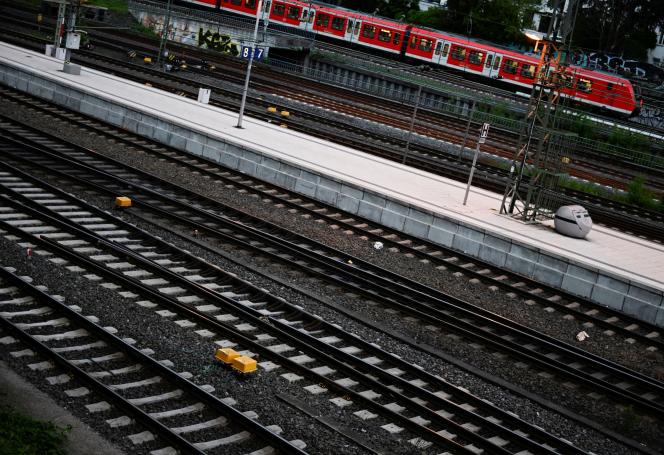Wednesday June 1 was to be a time of celebration for train lovers: it was the day when the 9 euro per month ticket for urban and regional transport came into force throughout Germany. This key measure in the government’s anti-inflation package was designed to make carbon-free public transport travel more desirable than ever. It was counting without the killjoy effect of the Deutsche Bahn (DB). Richard Lutz, the director of the public company which also manages the network, wanted to shower the expectations of users in person. On the rail, the coming months will be frustrating, he warned during a press conference.
Not only will the company’s trains still not arrive on time, but it is quite possible that network failures on certain sections will seriously affect the quality of service in the coming months, Lutz said in essence, Monday, May 30. He thus acknowledged that it would be difficult to cope with the increase in demand, citing the delicate mission of having to modernize the network and, at the same time, increase traffic. Rarely has the boss of the company already known for its delays, toilet and air conditioning breakdowns in all seasons pronounced such a mea culpa.
Suffice to say that those who are curious enough to leave their car in the garage to take the train could be disappointed. As for the regulars of the rail, they sigh. Since the start of 2022, delays have accumulated with an unusual frequency. In April, less than 70% of Deutsche Bahn mainline trains were on time (less than five minutes late). The objective of 80% punctuality is considered definitely out of reach. In question, the alarming state of the infrastructures, managed 100% by a subsidiary of the DB. “We are aware of that. We are at a breaking point. We can’t go on like this any longer,” Lutz continued, calling for a “paradigm shift” in infrastructure.
The crisis also concerns freight. Lutz’s statement comes a few days after Deutsche Bahn’s transport subsidiary, DB Cargo, admitted on Friday May 27 that no less than 309 freight trains were immobilized against its will. After a year 2021 already marked by serious breakdowns, freight customers have been warned that 2022 could be difficult.
A crisis that comes at the worst time
Eight sections are in a critical situation, the company acknowledged: the Ruhr conurbation, the regions of Frankfurt, Stuttgart, Munich, as well as the entire Rhine Valley, on an axis from Basel to Duisburg, passing through Mannheim. These are the most industrial and most populated regions of the country. Due to the organization of the network, any disturbance on one of these nodes has consequences for all traffic.
The finding is not new. During the 1990s, in hopes of taking the company public, its managers drastically reduced infrastructure renewal efforts. The effects of these savings are still being felt today, as traffic has increased significantly. In recent years, investments in favor of the network have however started to rise again: 13.6 billion euros must be spent on works in 2022, a record. However, the current chaos is no longer related to money. It is the management of construction sites in progress, the number of which is historically high, which causes blockages.
For the government, this crisis comes at the worst time. Rail is at the heart of the revolution targeted by the executive to decarbonize transport and reduce oil imports. By 2030, the coalition agreement provides, twice as many passengers must be transported by train, as well as a quarter of the goods. Studies show that passengers and especially companies are ready to choose rail to reduce their emissions, but the unreliability of the service is a strong barrier to change.
The current episode is reigniting the debate on a major reform of the company. Many private actors, users of the network, have long been demanding that the infrastructures be finally separated from the commercial operation of the lines. Transport Minister Volker Wissing of the liberal FDP wants to turn the infrastructure subsidiary into a “general interest company”. But discussions on the subject have been delayed.

















